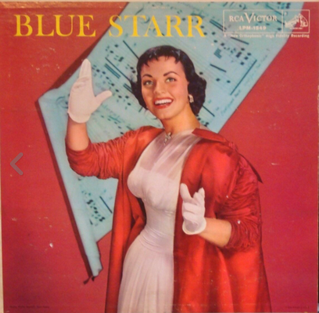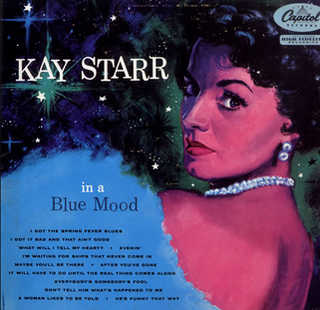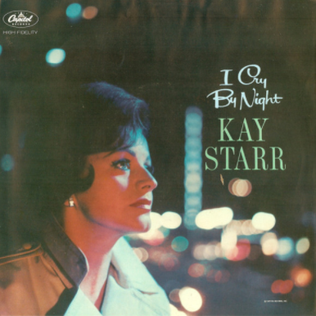
Hoagland Howard Carmichael was an American musician, composer, songwriter, actor, and lawyer. Carmichael was one of the most successful Tin Pan Alley songwriters of the 1930s, and was among the first singer-songwriters in the age of mass media to utilize new communication technologies such as television, microphones, and sound recordings.

"Stardust" is a 1927 song composed by Hoagy Carmichael, with lyrics later added by Mitchell Parish. It has been recorded as an instrumental or vocal track over 1,500 times. Carmichael developed a taste for jazz while attending Indiana University. He formed his own band and played at local events in Indiana and Ohio. Following his graduation, Carmichael moved to Florida to work for a law firm. He left the law sector and returned to Indiana, after learning of the success of one of his compositions. In 1927, after leaving a local university hangout, Carmichael started to whistle a tune that he later developed further. When composing the song, he was inspired by the end of one of his love affairs, and on the suggestion of a university classmate, he decided on its title. The same year, Carmichael recorded an instrumental version of the song for Gennett Records.

Kay Starr was an American singer who enjoyed considerable success in the late 1940s and 1950s. She was of Iroquois and Irish heritage. Starr performed multiple genres, such as pop, jazz, and country, but her roots were in jazz.

"Georgia on My Mind" is a 1930 song written by Hoagy Carmichael and Stuart Gorrell and first recorded that same year by Hoagy Carmichael at the RCA Victor Studios at 155 East 24th Street in New York City. However, the song has been most often associated with soul singer Ray Charles, who was a native of the U.S. state of Georgia and recorded it for his 1960 album The Genius Hits the Road.

No Count Sarah is a studio album by the American jazz singer Sarah Vaughan released in August 1959.
"Rockin' Chair is a 1929 popular song with lyrics and music composed by Hoagy Carmichael. Musically it is unconventional, as after the B section when most popular songs return to A, this song has an A-B-C-A1 structure. Carmichael recorded the song in 1929, 1930, and 1956. Mildred Bailey made it famous by using it as her theme song. Like other 1920s standards, "Rockin' Chair" relied on the stereotypes of minstrelsy, citing "Aunt Harriet" from the anti-Uncle Tom song "Aunt Harriet Becha Stowe" (1853).

Girls I Have Known is an album recorded by Jim Reeves and released in 1958 by RCA Victor. The album was produced by Chet Atkins.

Losers, Weepers is a studio album by Kay Starr. It was released in 1960 by Capitol Records. It was produced by Dave Cavanaugh. She is backed on the album by Van Alexander and his band. The album's liner notes state: "Kay Starr, working closely and skillfully with the musicians, so that each nuance of lyric, melody, and mood is carried out with full beauty and meaning."

Kay Starr: Jazz Singer is a studio album by Kay Starr. It was released in 1960 by Capitol Records. It was produced by Dave Cavanaugh, and the music was arranged and conducted by Van Alexander.

Movin'! is a studio album by Kay Starr. It was released in 1959 by Capitol Records. Produced by Dave Cavanaugh, it was her first album after returning to Capitol. While RCA Victor had her singing material with a pop orientation, the liner notes assert Capitol's intention to "reaffirm her status as a great jazz vocalist." She was backed on the album by an orchestra conducted by Van Alexander and a big band.

Blue Starr is a studio album by Kay Starr. It was released in 1957 by RCA Victor. It was her second album for RCA Victor. Hal Stanley was the producer.

The One, The Only Kay Starr is a studio album by Kay Starr. It was released in 1956 by RCA Victor. It was her first album for RCA Victor after a decade with Capitol Records.

In a Blue Mood is a studio album by Kay Starr. It was released in 1955 by Capitol Records.

The Kay Starr Style is a studio album by Kay Starr. It was released in 1953 by Capitol Records. The album included Starr's No. 3 pop hit, "Side by Side". Originally issued as a 10-inch LP with eight songs, it was reissued in 1955 as a 12-inch album with four additional tracks.

I Cry by Night is a studio album by Kay Starr. It was released in 1962 by Capitol Records. In 2014, Universal Music Group made the album available on YouTube with 24 bit mastering.

One More Time is a compilation album by Kay Starr. It was released in 1960 by Capitol Records.

I Hear the Word is a studio album of inspirational songs by Kay Starr. It was released in 1959 by RCA Victor. Starr was backed up on the album by The Jimmy Joyce Singers and an orchestra conducted by Bill Stafford.

Just Plain Country is a studio album by Kay Starr. It was released in 1962 by Capitol Records. Ken Nelson was the producer. In 2015, the Universal Music Group made the album available on YouTube.

Music, Martinis, and Memories is a studio album by television personality, Jackie Gleason. It was originally released in 1954 on Capitol Records. The orchestration consists of violins playing the melody while Bobby Hackett plays trumpet.

The discography of American singer Kay Starr contains 18 studio albums, 18 compilation albums, one live album, 87 singles, 12 other charting songs and one additional album appearance. Starr's first singles were released in collaboration with the Ben Pollack Orchestra. She signed to Capitol Records as a solo artist and had her first chart record in 1948 with "You Were Only Foolin' ". It reached number 16 on the American Billboard pop music chart. It was followed the same year by her first top ten pop single "So Tired". In 1950, "Bonaparte's Retreat" reached the top five of the Billboard pop chart. Starr reached the top five again with "Hoop-Dee-Doo" and "I'll Never Be Free".



















